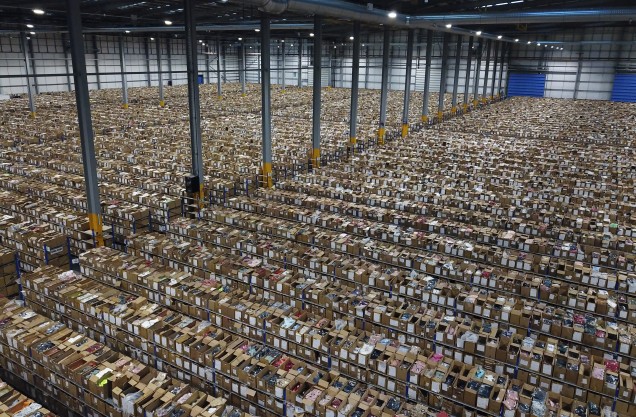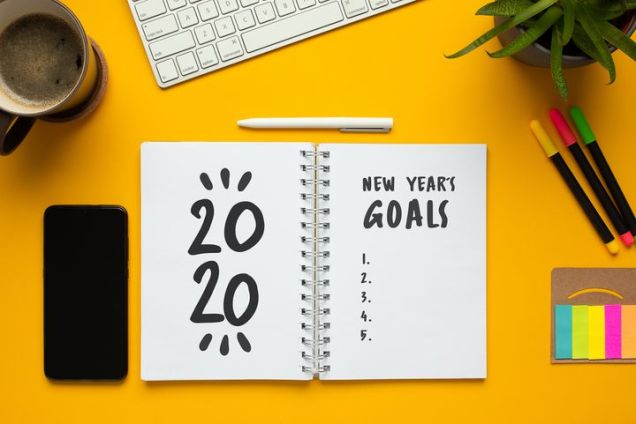What are your New Year’s resolutions? Lots of my friends and family have asked me about what they could do in 2020 to reduce their environmental impact. 2019 has put climate change and plastic pollution firmly on their radar and they want to do something about it.
Personally, I’ve found that a good resolution can be a great place to start.
But how do you ensure your time and energy is spent making a change that actually matters and is not just a feel-good distraction?

For me, a good environmental resolution should tackle a big issue (even if only a small part of it to begin with), rather than making a big deal about something pretty small. If you would like to know where your footprint is biggest, then I’d recommend this 5-minute calculator from WWF.
I also think that a good resolution should seek to alter a habit rather than just be a short-term change. That said, it needn’t happen all at once; resolutions can also be a great stepping stone, or a trial period, for a bigger lifestyle change.
So here are a few ideas for resolutions that I think strike the right balance between ambition and impact, collected from the conversations I’ve had with people over the last few weeks. I’d love to know what you think of them and any great ones that I have missed…
Eat less meat & dairy
The environmental impact of meat and the health benefits of a plant-based diet have both hit the headlines this year – see this BBC documentary or Game Changers on Netflix if you want to know more. And Jamie’s new veg book has some amazing recipes for replacing traditional meat faves.
 Jamie Oliver’s vegetarian cottage pie is one of my favourites
Jamie Oliver’s vegetarian cottage pie is one of my favourites
The good news is that it’s an area ripe for a resolution…
1. Go vegetarian at lunchtimes. I did this in 2019 and it was a revelation, so long as you venture beyond the Pret avocado baguette.
2. Be more strict about when you do (and don’t) eat meat. There’s a spectrum here – you could give up meat for a few days a week, all weeknights, or go completely vegetarian. Or you could start by limiting your intake of the worst offenders, lamb and beef. For 2020, we’ve decided to only eat meat when we really want to, when it can’t be substituted and when we know exactly where it has come from.
3. Replace dairy. Dairy is often overlooked but it is carbon intensive too. You could try switching to one of the many milk alternatives (with varying footprints) that are now available – my preference is Oat Milk.
Waste less
Whether it is fashion, food or coffee cups, we live in a throwaway world. That is something we as individuals can change.
 This is Pretty Little Thing’s warehouse in Sheffield
This is Pretty Little Thing’s warehouse in Sheffield
4. Opt out of fast fashion. I’m not trendy enough for this but my wife Sarah is. So this year, her resolution is to buy no new clothes at all – she’ll make use of what she’s already got and go second-hand for anything else. It’s a pretty A-list resolution but amazing if she can stick to it!
5. See food waste as a sin. Channel your grandparents and start seeing throwing away food for what it is: a sinful waste. If you want to double-down, then why not start by using food that was destined for the bin anyway by signing up to Oddbox (if you live in London) or using OLIO or Too Good To Go for leftovers or surplus food.
6. Make takeaway cups expensive. If you want something a little easier, then I really like this “latte levy” campaign by the Marine Conservation Society to encourage people to actually use their reusable cups. It’s a simple pledge: each time you use a takeaway coffee cup you donate £3 to the oceans.
Go renewable
7. Go 100% renewable. If you haven’t done it already, here is an easy win for January. There are now scores of renewable-only energy companies that cost the same as (and often less than) traditional fossil fuel tariffs. You can read my blog all about Bulb Energy here and search all providers here.
Reduce the amount you fly
I can hear you groaning – not this one again. I covered why reducing flights is important (and how off-setting is a second rate solution) in a previous blog, so won’t repeat that here.
Just to add that a much-quoted government survey from 2014 found that 70% of all flights in Great Britain were taken by just 15% of adults. If you are one of the 15% then your flying footprint will be in a different league to the other areas above. So…
 The good news is that there are lots of train in Europe – here’s on from Ireland!
The good news is that there are lots of train in Europe – here’s on from Ireland!
8. Save long-haul for long trips. If you do want to go on an adventure to a far-flung land, then why not pledge to savour it? Going on one long-haul trip for 2-3 weeks, rather than two or more separate trips, will greatly reduce your footprint (and probably give you a better break, too).
9. Embrace the train for city breaks. It’s only in the last decade or two that it has become so normal to hop on a plane for a weekend break. Why not use this site to explore the UK and Europe by train – it’s amazing where you can get to in not much time at all…
10. Make 2020 a no fly zone. I can hear your gasps, but why not? This really would be a statement and you may discover adventures closer to home that you never even knew existed. Join others making a 2020 “Flight Free” pledge here.
Advocate for climate action

11. Be noisy about climate change. One thing that we can all do in 2020 is devote some of our time to raising climate change even further up the national agenda. You could resolve to write to your local MP about issues in your local area, or join Extinction Rebellion (you can choose whether or not you are willing to be arrested for the cause!), or give some time or money to great campaigning organisation like Global Action Plan or Possible.

I for one, pledge to post on this blog every month in 2020 – with plenty more ideas for how we can all make a meaningful different in tackling the climate crisis.